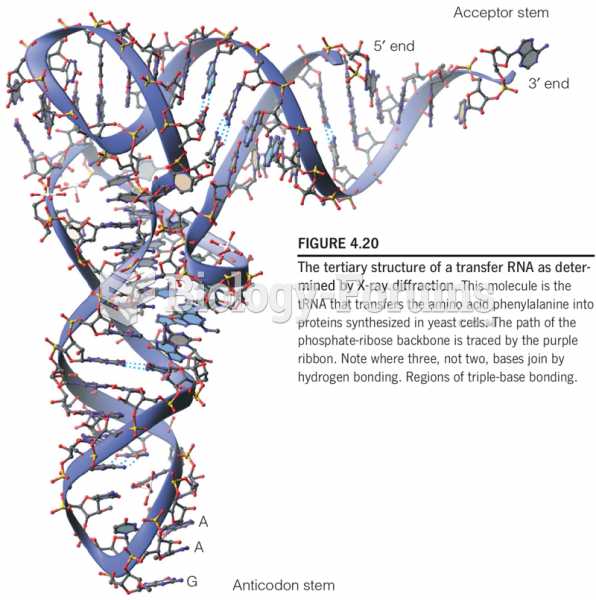This topic contains a solution. Click here to go to the answer
|
|
|
Did you know?
In the United States, an estimated 50 million unnecessary antibiotics are prescribed for viral respiratory infections.
Did you know?
You should not take more than 1,000 mg of vitamin E per day. Doses above this amount increase the risk of bleeding problems that can lead to a stroke.
Did you know?
If all the neurons in the human body were lined up, they would stretch more than 600 miles.
Did you know?
In 1835 it was discovered that a disease of silkworms known as muscardine could be transferred from one silkworm to another, and was caused by a fungus.
Did you know?
In most cases, kidneys can recover from almost complete loss of function, such as in acute kidney (renal) failure.
 Succession in the intertidal zone involves colonization and competition for limited space among spec
Succession in the intertidal zone involves colonization and competition for limited space among spec
 GI endoscopy. (a) Similar to other forms of GI endoscopy, laparoscopy involves the insertion of a sp
GI endoscopy. (a) Similar to other forms of GI endoscopy, laparoscopy involves the insertion of a sp
 Risk of death from motorcycle accidents (dashed lines) and passenger accidents (solid lines) per 100
Risk of death from motorcycle accidents (dashed lines) and passenger accidents (solid lines) per 100
 Upsetting the entire social order, the French Revolution removed the past as a sure guide to the ...
Upsetting the entire social order, the French Revolution removed the past as a sure guide to the ...



